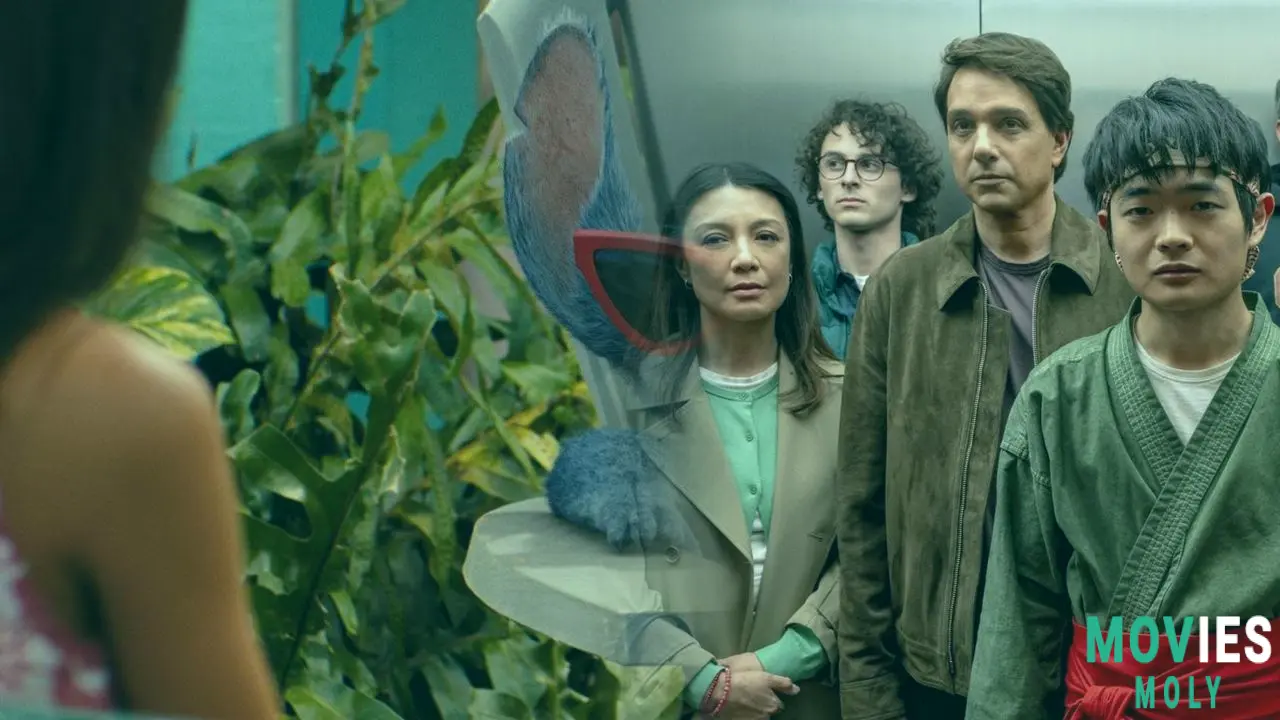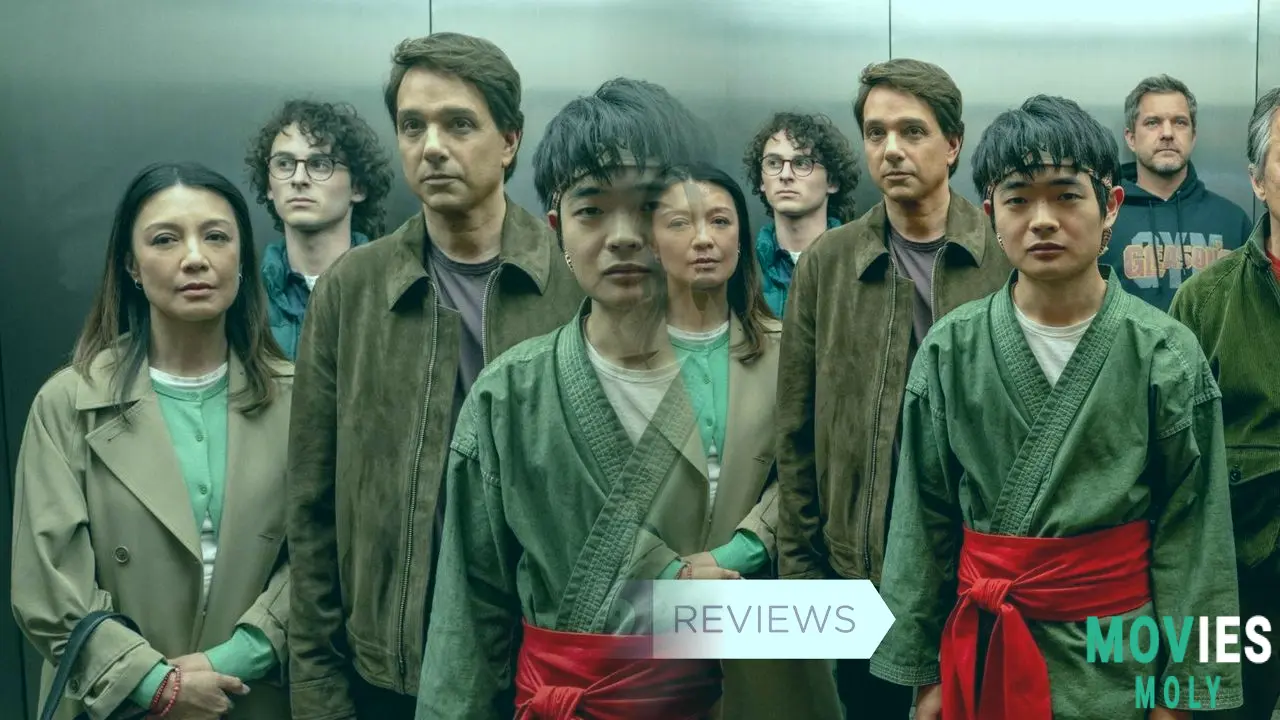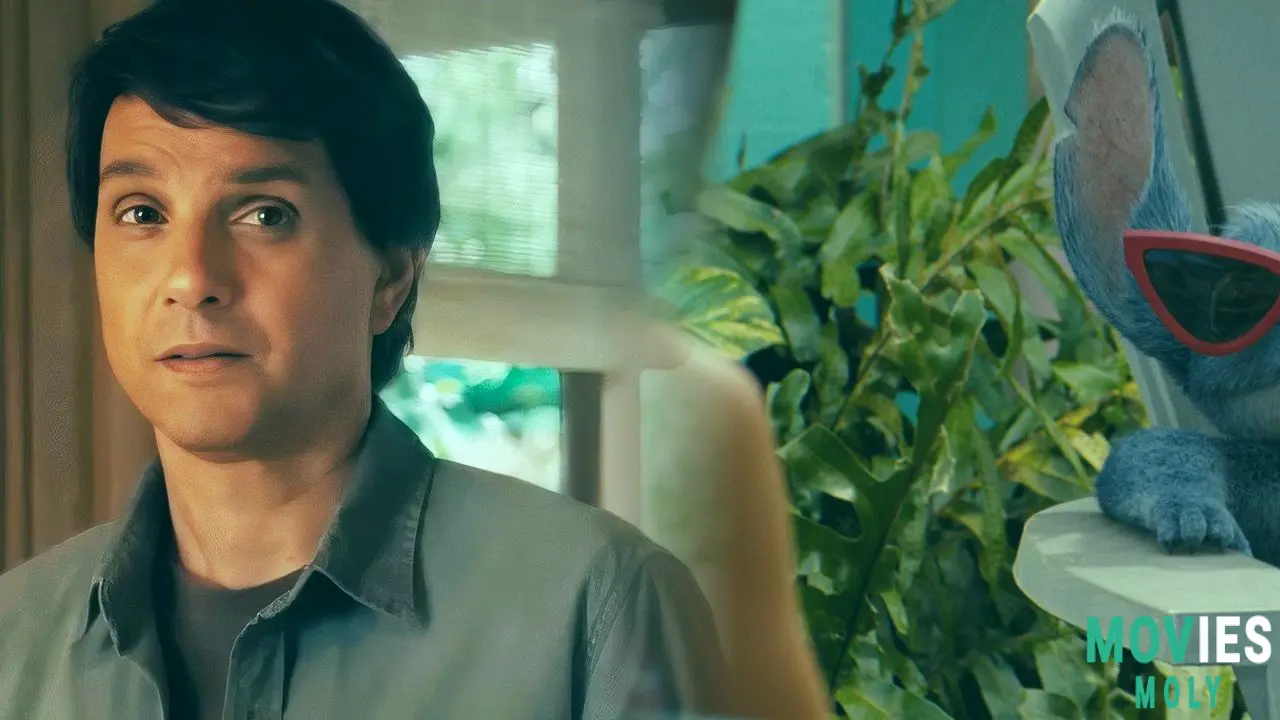The new movie, Karate Kid: Legends, offered one of the most exciting promises for fans of the franchise: bringing together its 40-year history. On one side, we have Ralph Macchio. He is the star of three original Karate Kid films and the hugely successful TV show Cobra Kai. On the other side is Jackie Chan. He is one of the world's most famous movie stars. He remade The Karate Kid 15 years ago to big box office numbers. The idea of seeing these two actual Karate Kid figures share the screen for the first time is why this movie exists. So, would you believe me if I said they are not in it very much? And when they are, the story feels incredibly rushed and confusing? You probably do not believe it because it does not make any sense. Yet this is the surprising strangeness of Karate Kid: Legends.
Directed by Jonathan Entwistle with a script by Rob Lieber, Karate Kid: Legends centers on Li Fong. Ben Wang plays Li, a teenage kung fu student from Beijing. His mother, played by Ming-Na Wen, is Mr. Han’s niece. She gets a new job which leads her and Li to move from China to New York. Once in New York Li falls for a local girl named Mia. Sadie Stanley plays Mia. Li then gets involved in a rivalry with her ex-boyfriend Conner. Aramis Knight plays Conner. Conner just happens to be a local karate champion. This all sounds very familiar. It is the basic story of the original Karate Kid and its remake. It is a setup we have seen before.
Things change from there. As I mentioned Li already knows martial arts. He finds himself helping Mia’s dad Victor. Joshua Jackson plays Victor. Victor is a former boxer who owes money to a local loan shark who is also a sensei. Victor hopes to get out of debt by fighting again. In this first part of the movie Karate Kid: Legends is actually quite interesting. It takes the familiar Karate Kid formula and twists it in an unexpected way. It turns the student into the teacher. Stanley and Jackson are both likable and have a lot of personality. Wang immediately shows himself to be a strong a likable and exciting lead. Together they are fun to cheer for. Things are looking, dare I say, quite promising.
The Unfortunate Disappearing Act of Daniel LaRusso in the New Karate Kid MovieWhy Ralph Macchio's Return Feels Like a Missed Opportunity After Cobra Kai
The movie technically brings Daniel into the story right away. It opens with scenes from The Karate Kid Part II. Daniel and Mr. Miyagi are talking about Miyagi’s ancestors. This is used to connect Mr. Han and Mr. Miyagi's families. The story then quickly moves to Beijing, China. It reintroduces Mr. Han and brings in Li Fang. However, Daniel is not seen again for about the next hour of the movie. This is a real problem for a film built around his and Jackie Chan's presence. I know I was waiting for him.
When Li moves to New York early on Mr. Han stays part of the story through phone calls. Daniel is nowhere during this time. He has no existing connection to Li. It is only after Mr. Han visits his best student that he decides to go find Daniel. Han wants to convince Daniel to teach Li karate. We get a short scene of Han and Daniel talking about Mr. Miyagi. I liked this scene. Then Han leaves California. More time goes by before Daniel finally shows up in New York. He is part of the story from that point forward. But this means Macchio is really only in the movie’s final section. He is a minor character or worse in this film. This is a far cry from the main roles Daniel has had in the franchise for over 40 years. I never thought Daniel would be the main lead of Karate Kid: Legends. But I definitely thought he would be in the movie for more than just the final training and the tournament. This feels like a real step back.
What disappoints me more than just the size of Daniel's role is its impact. This was never going to be his main story. That is a good thing. Li Fang is a good character whom I enjoyed very much. This is largely thanks to Ben Wang’s acting. But I thought Daniel would still be a key person. He could help shape Li’s fight training. He could give him wise words. The truth is Daniel's only real help is creating the Tiger Trap move. Li uses this move to win the 5 Boroughs Tournament at the end of Karate Kid: Legends. The movie tries to make the connection between Han Daniel and Miyagi feel important. But it does not fully work. Han and Daniel are supposed to show the two sides of the Miyagi family tree. The film does not clearly show how they are both helping Li beyond one teaching kung fu and the other karate.
Because the ending of Karate Kid: Legends moves so fast there is not enough time to really build the connection Daniel has to Han or Li. I am now left feeling the movie would have been fine or even better if Daniel was not even in it. He needed a much bigger part or at least a more important one. Otherwise he should have been left out of the movie completely. This is especially true after seeing how Cobra Kai used Macchio. The show spent plenty of time on the kids and Johnny Lawrence. But Daniel remained a key figure throughout. The long TV format allowed the show lots of time to show his struggle to pass on Miyagi’s teachings and grow as a teacher. Plus he still got to show his own fighting skills. There are hints of this in Karate Kid: Legends but not enough. Daniel feels like an afterthought in the new movie instead of the franchise's main person. It makes sense to give a lot of the movie’s time to Li’s story. But Cobra Kai showed how Macchio’s return could have been handled much better. I hope Karate Kid: Legends does well enough that Ralph Macchio can return as Daniel LaRusso again and get a better role next time.
The New Karate Kid Movie's Confusing Story Choices and Blazing Fast Pacing

How Two Different Stories Are Crammed Into One Short And Disorienting Film
Without getting too detailed Mr. Han and Daniel LaRusso appear to train Li for his own big karate tournament. Why is Li now fighting in a tournament when he spent half the movie training Joshua Jackson’s character? Well because Karate Kid: Legends finished that story. Then it added another one with very weak and unbelievable plot connections. Han shows up first for reasons that are unclear at best. Then he brings in LaRusso. LaRusso’s addition is even less believable. The movie even jokes about it not making sense and never explains it properly. We just have to accept it. This kind of writing choice can really take you out of the story.
At this point everything in Karate Kid: Legends has changed so much. Its main story supporting characters various reasons for acting. It feels like there should be another hour or so left to at least keep everything balanced. This is not the case. Once LaRusso and Han fully arrive there are only about 30 minutes left in the 94-minute movie. So the movie speeds up like a race car on a straight road. We watch Li’s training with a countdown on the screen. This leads right into the tournament with almost no time in between. Do you want reasons for actions? Do you want personal thought? Do you want characters to grow? Karate Kid: Legends does not care. The second half of the movie goes by so unbelievably quickly. You can almost hear a studio executive typing an email saying "If we can cut this down to 90 minutes we could fit in an extra showtime per day."
That probably did not happen. But the movie sure feels like it did. How else can you explain such a fast pace? It completely takes away from everything the first half of the movie was trying to do. It also avoids a fully developed story. The bad guy Conner for example has no real growth. Li’s own past story about a dead brother feels forced in and not fully developed. Both Mia and Victor take a big step back after being important. We never fully understand why Mr. Han needs Daniel at all. Daniel adds so little to the movie you almost feel bad for him. At least there are a few small nods to other Daniel stories. These almost make it worthwhile for long-time fans. But like the movie they are too short. Even the final tournament, the "Five Boroughs" which sounds cool and takes place outdoors in New York City is never given any real weight or excitement. There is just not enough time. The rules are shouted at us like a frantic YouTube video. The whole thing including the final match happens with very little real drama. Then it rushes right to the credits. It leaves you feeling a bit cheated.
Looking Back at How The Karate Kid Franchise Got Here and What This New Movie Means

Did Karate Kid Legends Truly Bridge the Two Generations or Just Create More Questions?
In the summer of 2010 many people did not expect much from The Karate Kid remake. It was a remake of a popular 1980s film. But remakes were starting to lose their charm. It was set to compete with another 80s property. This was The A-Team a big movie based on the TV show. With stars like Liam Neeson and Bradley Cooper The A-Team looked like it would win at the box office. Even Jackie Chan’s fame did not seem to create much excitement for a new Karate Kid. The remake did not even feature karate, but kung fu. In some parts of the world the movie was even called The Kung Fu Kid.
Yet on June 11, 2010 The Karate Kid beat The A-Team at the box office. It opened to an impressive $18.8 million on its first day. Its earnings grew to $21 million on Saturday. It ended the weekend with $55 million taking the number 1 spot. Not only did The Karate Kid make more than double The A-Team’s $25 million opening weekend but it almost made back its $40 million budget. Even with Toy Story 3 coming out the next week and doing very well that summer The Karate Kid still made $176 million in the US and $359 million worldwide. It was the seventh-highest-grossing movie of that summer. It was the 11th-highest-grossing film of 2010.
The Karate Kid was a box office hit. It received mostly good reviews from critics and family audiences. It got a 67% on Rotten Tomatoes. It earned a 61 on Metacritic. With all of that it seems a sequel would have been quickly made. Studios can often make sequels to popular movies very fast. So the fact that Sony Pictures struggled with The Karate Kid 2 is confusing. Plans for The Karate Kid 2 were announced soon after the 2010 film’s release. Director Breck Eisner signed on. But progress on the sequel was slow. Jaden Smith was busy working on After Earth with his father Will Smith. This was a box office flop. Due to the growing time gap many writers worked on the project. Jackie Chan hinted that earlier script versions for The Karate Kid 2 were not very good. This likely made Sony try many different scripts to please both Chan and get Smith back. By 2014 Eisner had left. Production was so slow that by 2017 he returned. But by the end of that year the project seemed dead. Smith was 12 when The Karate Kid came out. By 2017 he was nearly 20. He had seemingly grown too old for the role.
Around this time the 2000s and early 2010s era of remakes changed. A new trend appeared: the legacy sequel. Movies like Star Wars: The Force Awakens, Jurassic World, and Creed showed Hollywood that audiences did not want remakes. They wanted continued stories in long-running franchises. Around this time The Karate Kid was getting its legacy sequel. Instead of continuing the 2010 film’s story which was meant to be a remake, why not make a legacy sequel to the original Karate Kid trilogy? But this time from Johnny Lawrence's viewpoint. And so Cobra Kai began. It first appeared in 2018. It is a good example of how to do a legacy return.
Throughout Karate Kid: Legends, a phrase gets repeated. "Two branches. One tree." This is the film’s way to explain how Daniel and Mr. Han are connected. It refers to these two sides of the franchise. It is also, sadly, the perfect way to describe this movie’s biggest problems. It feels like two different movies in one. Both parts seem connected. But they never quite come together. I really wanted to love this film. I am a huge Karate Kid fan. I was ready to see this franchise get even better after the popularity of Cobra Kai. I thought Ben Wang’s acting would carry it. But it turns out the film does not aim for any of that. It rushes through one story. Then it clumsily jumps into another. It does not care about emotional or narrative consistency. Past Karate Kid movies worked because we cared about the characters. We felt their struggles. They were the underdogs who won. Some of that is on the surface here. But it never goes deeper. It is just plain strange how badly it messes everything up. I hope future attempts at bridging this world are more successful.



